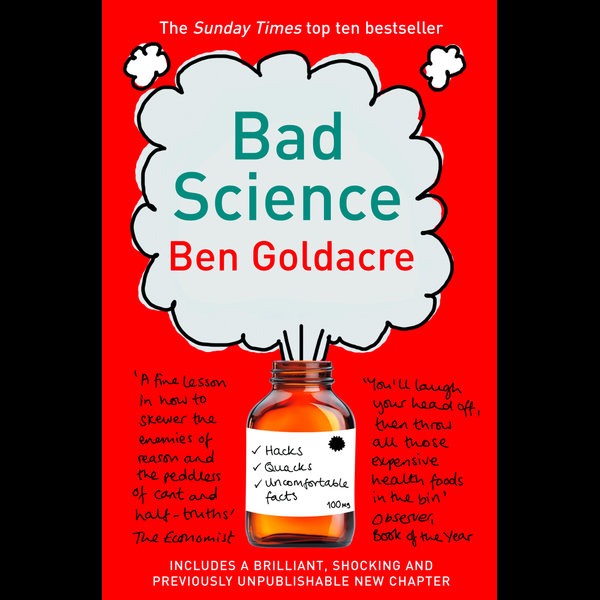
Bad Science - Ben Goldacre
I read a lot of books that aren’t really relevant to the public, and aren’t in need of review. But this one is important.
I always liked Ben Goldacre for his criticism of the pharmaceutical research industry and Drs being misled as to what they’re prescribing and why.
But he also criticizes the “alternative” fields on the same grounds.
From my standpoint in the alternative field, it’s very useful to use Ben’s critique of both sides.
People always ask us for “proof”. “Scientific Evidence.. research”.
People are often disappointed when I dismiss this request, on the grounds that the research on humans is rubbish, is getting worse with time, and is unlikely to change.
This means that research will not, and possibly can not, give us what we’re after.
The only research we lean on is animal research done before research costs became prohibitive.
The only reason this research is useful to humans is because we solved most health problems in the animal industries using it. But the only relevance to humans is to try it and gauge the results.
Ben’s point seems ultimately to be, “don’t believe anything”, and offers very mediocre advice on diet and lifestyle, precisely because the research of both allopathic and “natural” treatments offer so little hope for a cure, prevention, or reversal.
Of course if the research says little, it offers little.
So we don’t “sell” the research, we sell the results, which for a book's worth of reasons will evade a concrete “proof” in the form of science.
As a researcher, it was disheartening to learn how essentially useless and basically corrupt it is. The response is to go around it, to do what works and dismiss the nonsense of modern research.
Or we can trade papers on why eggs are good, why they’re bad, why they sometimes have no effect on health in various studies. This examination does nothing for our health, only doing or not doing does, and if we are to believe research, we apparently shouldn’t do anything in most cases.
I’m probably being unfair in reducing this conversation to some short paragraphs. This book is worth reading and understanding and discussing at length.